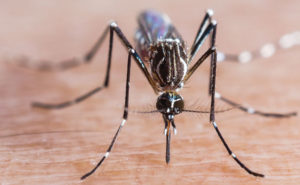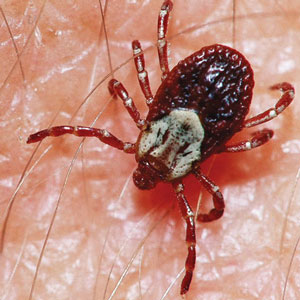Under the stewardship of the Entomological Society of America (ESA), 18 scientific and medical societies, professional associations and advocacy groups — including the National Pest Management Association — formed the Vector-Borne Disease Network, a new coalition that will advise and support federal policymakers in confronting diseases spread by insects and related arthropods.

Photo: iStock.com/teptong
These illnesses — such as Lyme disease, Zika or West Nile virus — are transmitted by vector organisms, primarily blood-feeding insects or arthropods. Vectors ingest disease-causing germs when biting an infected human or animal and later inject them into a new host during a subsequent bite.
Between 2004 and 2016, reported human disease cases in the United States resulting from bites from arthropods — primarily ticks and mosquitoes — tripled, according to the U.S. Centers for Disease Control and Prevention (CDC). Meanwhile, nine new germs spread by ticks and mosquitoes were discovered or introduced in that same timeframe. (See CDC Vital Signs, May 2018.) The underlying causes for these trends are varying and complex and so are the potential solutions. Thus, the Vector-Borne Disease Network will gather expertise and perspectives from a variety of stakeholders invested in reducing the public-health risks posed by ticks and mosquitoes.
The founding members of the Vector-Borne Disease Network are:

Photo courtesy of, and copyrighted by, Gene White, pmimages@earthlink.net
- American Mosquito Control Association
- American Society of Tropical Medicine and Hygiene
- Association of Public Health Laboratories
- Association of State and Territorial Health Officials
- Council of State and Territorial Epidemiologists
- Entomological Society of America
- Georgia Mosquito Control Association
- Midwest Center of Excellence for Vector-Borne Disease
- National Association of County and City Health Officials
- National Association of Vector-Borne Control Officials
- National Environmental Health Association
- National Pest Management Association
- Northeast Regional Center for Excellence in Vector-Borne Diseases
- Pacific Southwest Center of Excellence in Vector-Borne Diseases
- Puerto Rico Vector Control Unit
- Society for Vector Ecology
- Southeastern Regional Center of Excellence in Vector-Borne Diseases
- Western Gulf Center of Excellence for Vector-Borne Diseases
“Our country can no longer afford to be complacent toward the dangers posed by mosquito- and tick-borne disease,” says Dr. Robert K. D. Peterson, ESA president and professor of entomology at Montana State University, in a press release. “From researchers and public-health officials to policymakers and vector-management professionals, it’s time to roll up our sleeves and tackle this problem together.”
Stakeholder groups in the Vector-Borne Disease Network are conducting preliminary discussions in 2019, with plans for an official launch of the group’s efforts in late 2019 or early 2020.
Leave A Comment